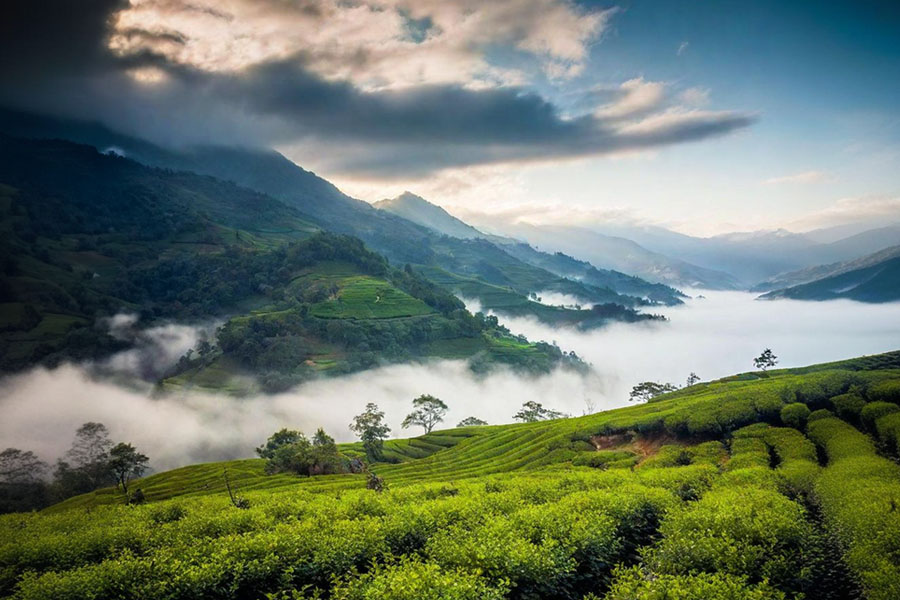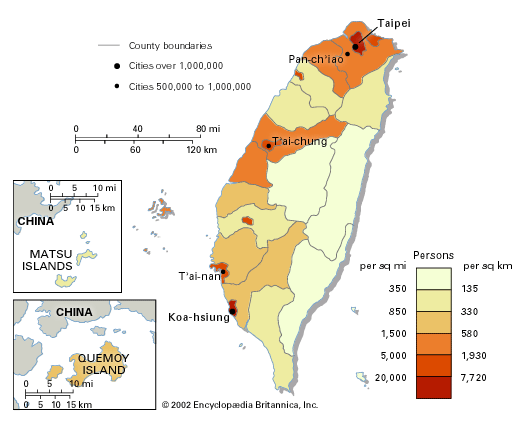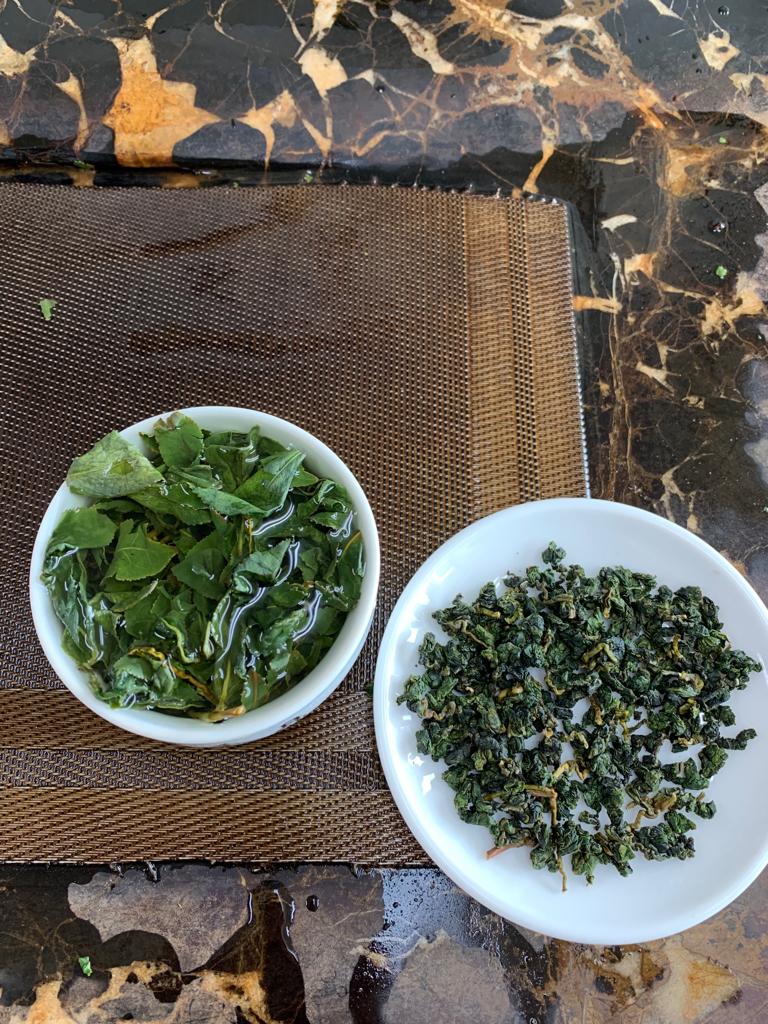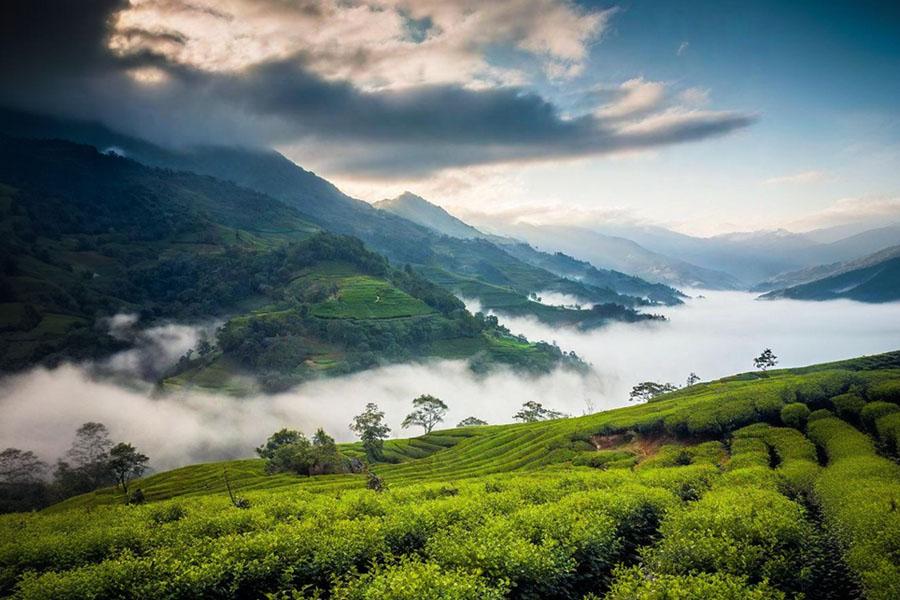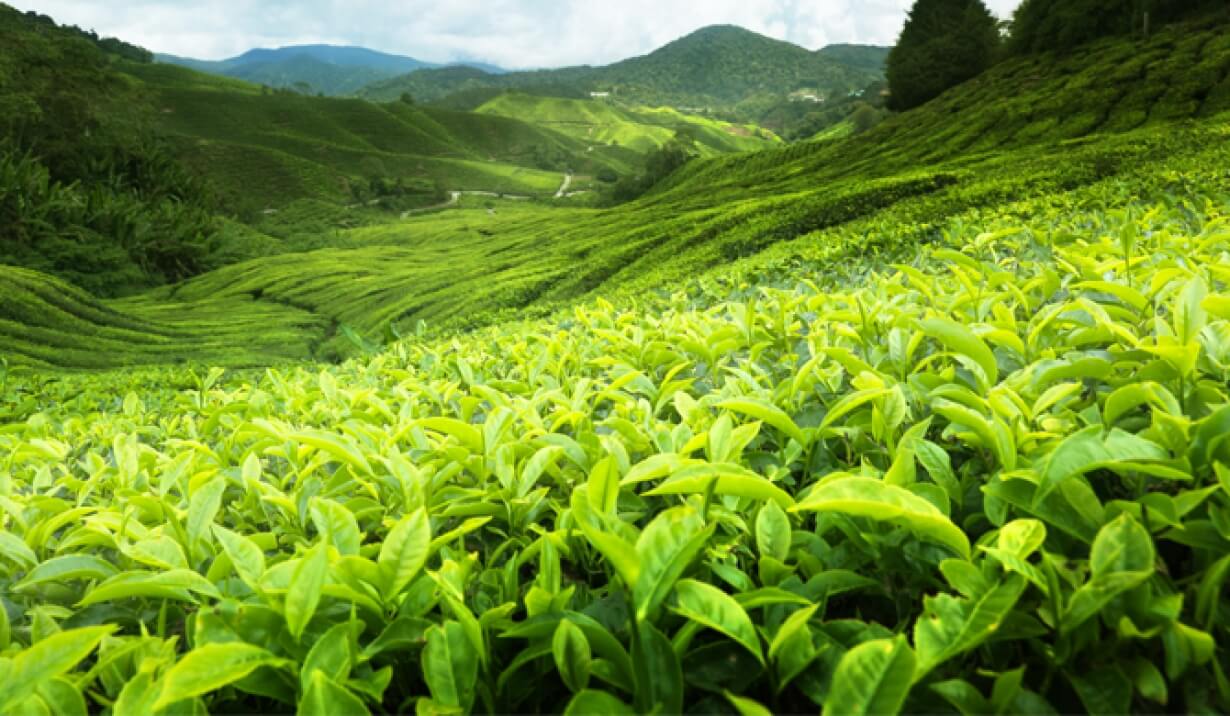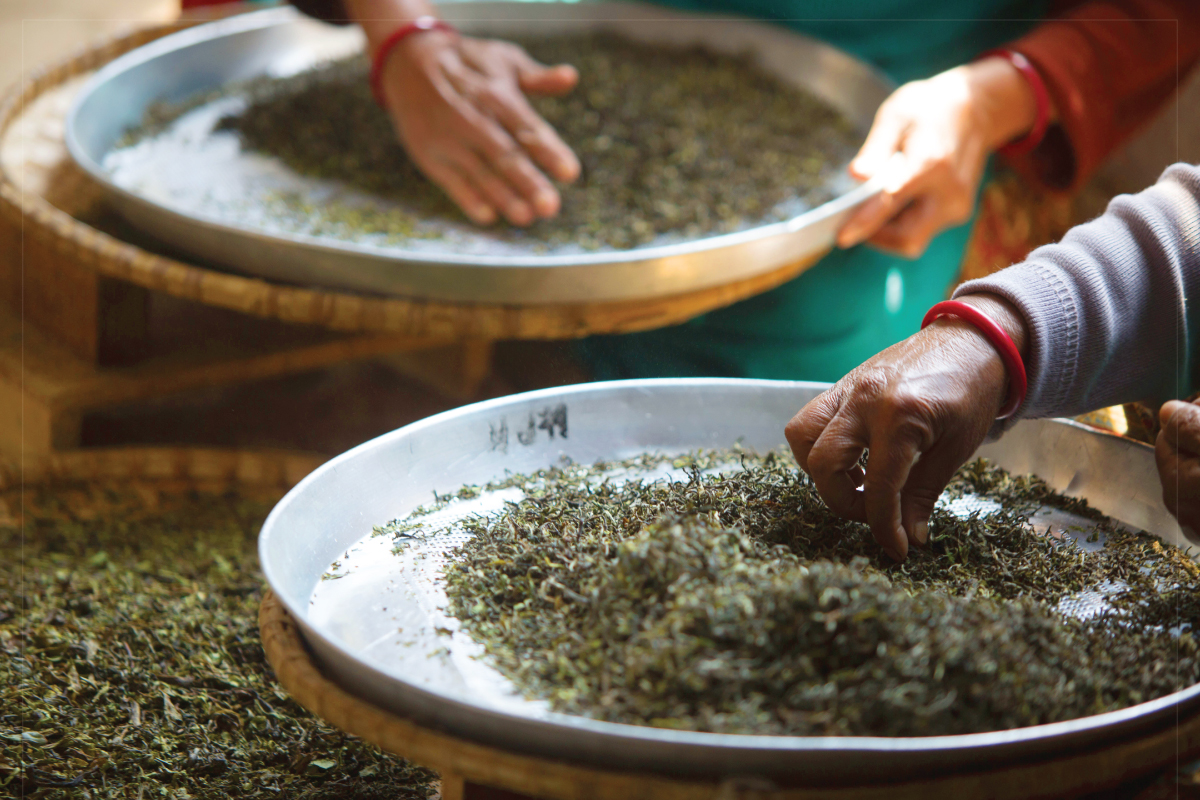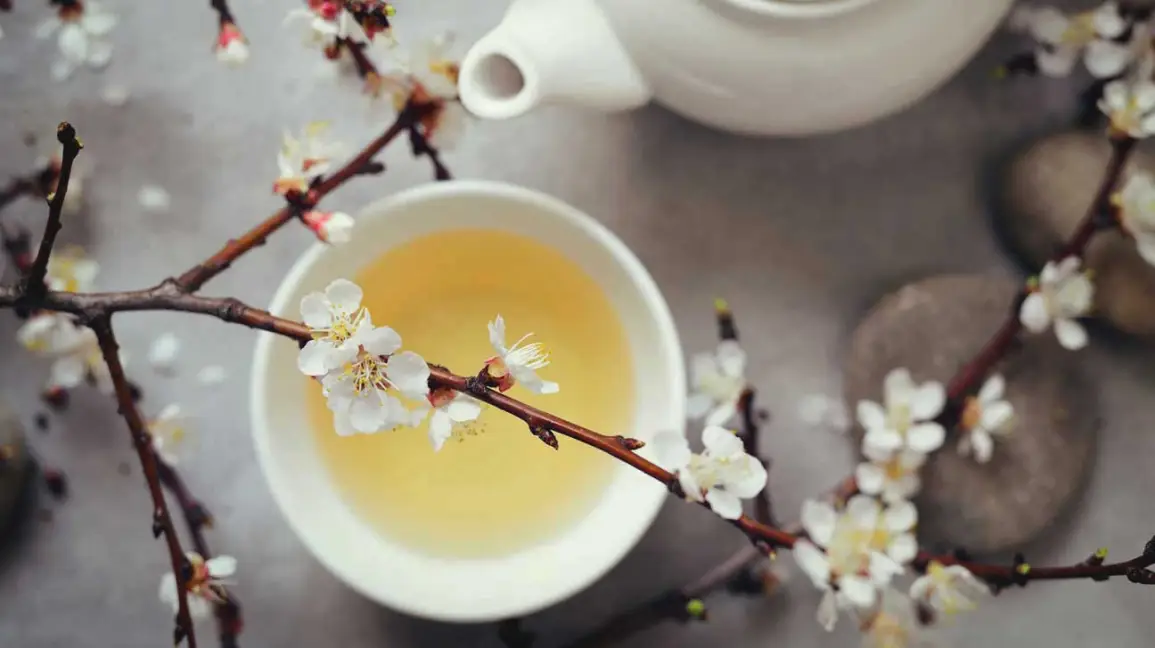The misty climate of Taiwan plays a significant role in shaping the flavor profile of its black teas, particularly those grown in high-altitude regions. Here are the key influences of this unique climate:
Humidity and Moisture
- Increased Humidity: The mist and fog prevalent in Taiwan’s mountainous areas create a humid environment that benefits tea plants. This humidity helps maintain moisture levels in the soil and on the leaves, which is essential for healthy growth and development. The consistent moisture reduces stress on the plants, allowing them to develop more complex flavors without excessive astringency.
- Reduced Sun Exposure: The dense cloud cover associated with the misty climate limits direct sunlight exposure. This reduced intensity of sunlight encourages slower photosynthesis, which can lead to higher concentrations of amino acids and other flavor compounds in the leaves. As a result, Taiwanese black teas often exhibit a smoother taste with less bitterness compared to those grown in sunnier climates.
Temperature Variations
- Day-Night Temperature Fluctuations: The significant temperature differences between day and night at high altitudes contribute to the development of robust tea plants. These fluctuations promote the synthesis of various compounds that enhance flavor complexity, including aromatic oils that contribute to the tea’s fragrant profile.
- Cooler Growing Conditions: The cooler temperatures at higher elevations slow down the growth rate of tea plants, allowing them to develop thicker leaves that are richer in flavor compounds. This results in a more intense aroma and a fuller-bodied tea, which is characteristic of many Taiwanese black teas.
Flavor Development
- Enhanced Flavor Complexity: The combination of high humidity, reduced sunlight, and cooler temperatures fosters an environment where tea plants can produce unique flavor profiles. Taiwanese black teas are often described as having rich, malty aromas with notes of caramel, honey, and dried fruit, setting them apart from other black teas produced in different climates.
- Lower Astringency: The misty conditions help reduce catechin levels—polyphenols responsible for astringency—resulting in a smoother mouthfeel. This characteristic is particularly appealing to tea drinkers who prefer less bitter flavors.
Conclusion
In summary, Taiwan’s misty climate significantly influences the flavor of its black teas by promoting slower growth, enhancing flavor complexity, and reducing astringency. These climatic conditions create an ideal environment for cultivating high-quality black teas that are smooth, aromatic, and rich in flavor, distinguishing them from those produced in sunnier or drier regions like India or China.
